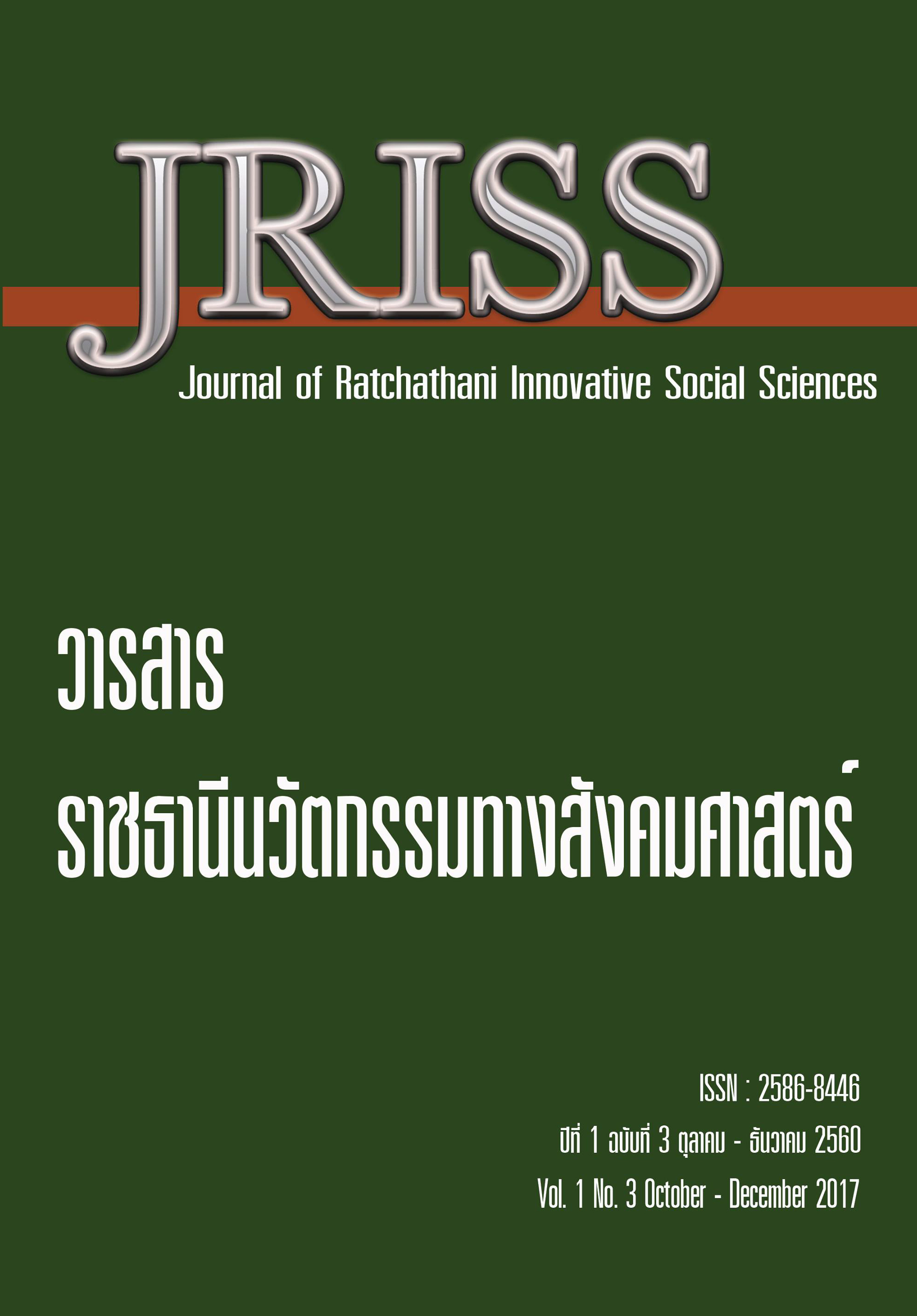Using Direct Experiences to Foster Understanding External Quality Assessment: A Case Study of Students Attending A Course of Administration for Teachers in Semester One of 2556 B.E.
Main Article Content
Abstract
This classroom research aimed to summarize experiences and concepts on External Quality Assessment Round 3, 2) to evaluate students’understanding, and 3) to study students’satisfaction to direct experiences on learning activities. The study was carried out in 3 steps as follows: (1) Providing students with basic understanding on External Quality Assessment Round 3; (2) Providing students’opportunities of field experiences; and (3) Exchanging field experiences and evaluating the results. Target groups of study included 56 subjects, which were 43 students of Faculty of Education, Ubon Ratchathani Rajabhat University, and 13 informants from the school used as a case study. The data were analyzed by means of frequency, percentage, and content analysis.
The findings were as follows:
- 1. From exchanging field learning it revealed that students gained more experiences and the concept of external evaluation of education round 3 consisted of 12 indicators, 5 indicators for students’quality evaluation, one for teachers’quality evaluation, the rest of 6 indicators were for administration quality evaluation.To prepare themselves for External Quality Assessment Round 3, head teams were appointed, and team members were recruited.
- 2. The study of students’ understanding of external evaluation of education round 3 for Basic Education Level revealed that 80 percent of students gained understanding of the subject according to the criteria that was 8 scales out of 10. The subjects that students understood lower than others were the preparation for the external evaluation round 3; and the evaluation of indicator 5, achievement evaluation.
- 3. The study of students’satisfaction towards their experience and learning on external evaluation of education round 3 for Basic Education Level revealed that all students were satisfied according to the criteria, which were rated as higher or highest levels.
Article Details
ความคิดเห็นและข้อเสนอแนะใด ๆ ที่นำเสนอในบทความเป็นของผู้เขียนแต่เพียงผู้เดียวโดยบรรณาธิการ กองบรรณาธิการ และคณะกรรมการวารสารราชธานีนวัตกรรมทางสังคมศาสตร์ไม่ได้มีส่วนเกี่ยวข้องแต่อย่างใด มหาวิทยาลัย บรรณาธิการ และกองบรรณาธิการจะไม่รับผิดชอบต่อข้อผิดพลาดหรือผลที่เกิด จากการใช้ข้อมูลที่ปรากฏในวารสารฉบับนี้
References
นิวัฒน์ สิงข์ศิริ และคณะ. (2556). รายงานเก็บข้อมูลเกี่ยวกับข้อมูลคณะกรรมการสถานศึกษา. เอกสารอัดสำเนา.
รับรองมาตรฐานและประเมินคุณภาพการศึกษาภายนอก.สำนักงาน. (2553). คู่มือการประเมินคุณภาพภายนอกรอบสาม (พ.ศ. 2554-2548) ระดับการศึกษาขั้นพื้นฐาน ฉบับสถานศึกษา พ.ศ.
2554. กรุงเทพฯ: แม็ทพอยท์.
ราชกิจจานุเบกษา. (2542).พระราชบัญญัติการศึกษาแห่งชาติ พ.ศ. 2542. ในราชกิจจานุเบกษา เล่ม 116 ตอนที่ 74 ก (19 สิงหาคม 2542).
ศูนย์เครือข่าย สมศ. มหาวิทยาลัยราชภัฏอุบลราชธานี. (2553). รายงานสรุปผลการดำเนินงานโครงการจัดประชุมการส่งเสริมให้สถานศึกษา เตรียมความพร้อมรับการประเมินภายนอกรอบสาม
ระดับการศึกษาขั้นพื้นฐาน ประจำปีงบประมาณ 2553. มหาวิทยาลัยราชภัฏอุบลราชธานี: เอกสารสำเนาเย็บเล่ม.
สมาน อัศวภูมิ. (2551). เส้นทางสู่คุณภาพและมาตรฐานการศึกษา.อุบลราชธานี: อุบลกิจออฟเซ็ทการพิมพ์.
_______. (2554). การบริหารการศึกษาสมัยใหม่: หลักการ ทฤษฎี และการปฏิบัติ. อุบลราชธานี: อุบลกิจออฟเซ็ทการพิมพ์.
_______. (2555). ทำอย่างไรจึงจะผ่านการประเมินคุณภาพรอบ 3. อุบลราชธานี: อุบลกิจออฟเซ็ทการพิมพ์.
สุภาวรรณ จันทะบุตรและคณะ. (2556). รายงานเก็บข้อมูลตามตัวบ่งชี้ที่ 1. เอกสารอัดสำเนา.
Arcaro, Jerome S. (1995). Quality in Education: An Implementation Handbook. Florida: St. Lucie Press.
Campbell, Ronald F., Corbally, John E., and Nystrand, Raphael O. (1983). Introduction to Educational Administration. Boston: Allyn and Bacon.
Foster, S.T. (2004). Managing Quality: An Integrative Approach. 2nd ed. New Jersey: Pearson Prentice Hall.
Kaufman, Roger and Zahn Douglas.(1993).Quality Management Plus: The Continuous Improvement of Education. California: Corwin Press.
Knezevich, Stephen J. (1962). Administration of Public Education. New York: Harper & Row Publisher.
Peters, T.J. and Waterman, (1982). R.H. In Search of Excellence: Lessons from America’s Best-Run Companies. New York: Harper Collins.
Sallis, Edward. (1997).Total Quality Management in Education. 2nd ed. London: Kogan Page. Stone, John. (2006f). Increasing Effectiveness: A Guide to Quality
Management. 2nd ed. London: Routledge.


